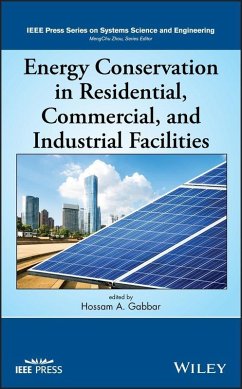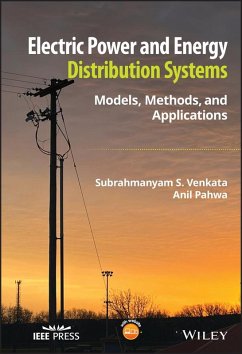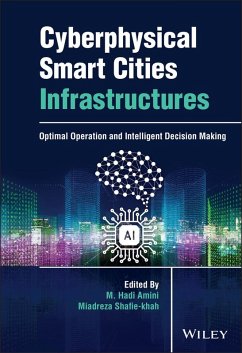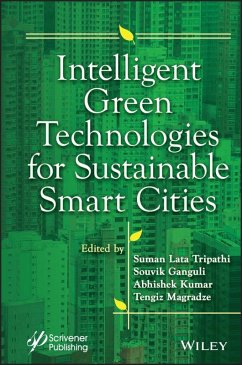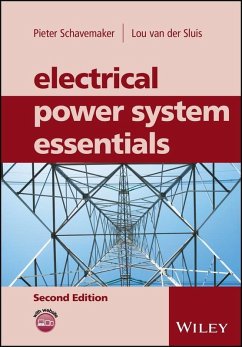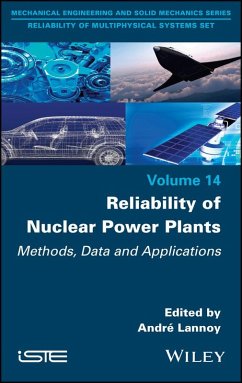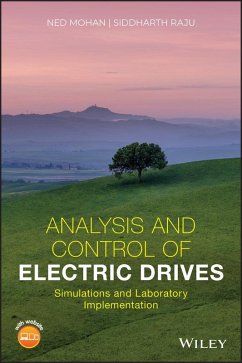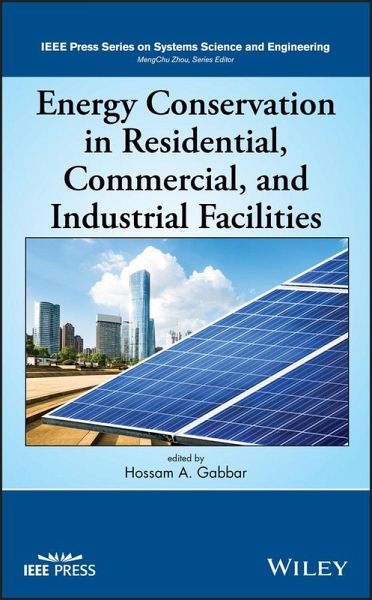
Energy Conservation in Residential, Commercial, and Industrial Facilities (eBook, PDF)
Versandkostenfrei!
Sofort per Download lieferbar
122,99 €
inkl. MwSt.
Weitere Ausgaben:

PAYBACK Punkte
0 °P sammeln!
An authoritative and comprehensive guide to managing energy conservation in infrastructures Energy Conservation in Residential, Commercial, and Industrial Facilities offers an essential guide to the business models and engineering design frameworks for the implementation of energy conservation in infrastructures. The presented models of both physical and technological systems can be applied to a wide range of structures such as homes, hotels, public facilities, industrial facilities, transportation, and water/energy supply systems. The authors--noted experts in the field--explore the key perfo...
An authoritative and comprehensive guide to managing energy conservation in infrastructures Energy Conservation in Residential, Commercial, and Industrial Facilities offers an essential guide to the business models and engineering design frameworks for the implementation of energy conservation in infrastructures. The presented models of both physical and technological systems can be applied to a wide range of structures such as homes, hotels, public facilities, industrial facilities, transportation, and water/energy supply systems. The authors--noted experts in the field--explore the key performance indicators that are used to evaluate energy conservation strategies and the energy supply scenarios as part of the design and operation of energy systems in infrastructures. The text is based on a systems approach that demonstrates the effective management of building energy knowledge and supports the simulation, evaluation, and optimization of several building energy conservation scenarios. In addition, the authors explore new methods of developing energy semantic network (ESN) superstructures, energy conservation optimization techniques, and risk-based life cycle assessments. This important text: * Defines the most effective ways to model the infrastructure of physical and technological systems * Includes information on the most widely used techniques in the validation and calibration of building energy simulation * Offers a discussion of the sources, quantification, and reduction of uncertainty * Presents a number of efficient energy conservation strategies in infrastructure systems, including HVAC, lighting, appliances, transportation, and industrial facilities * Describes illustrative case studies to demonstrate the proposed energy conservation framework, practices, methods, engineering designs, control, and technologies Written for students studying energy conservation as well as engineers designing the next generation of buildings, Energy Conservation in Residential, Commercial, and Industrial Facilities offers a wide-ranging guide to the effective management of energy conservation in infrastructures.
Dieser Download kann aus rechtlichen Gründen nur mit Rechnungsadresse in A, B, BG, CY, CZ, D, DK, EW, E, FIN, F, GR, HR, H, IRL, I, LT, L, LR, M, NL, PL, P, R, S, SLO, SK ausgeliefert werden.




